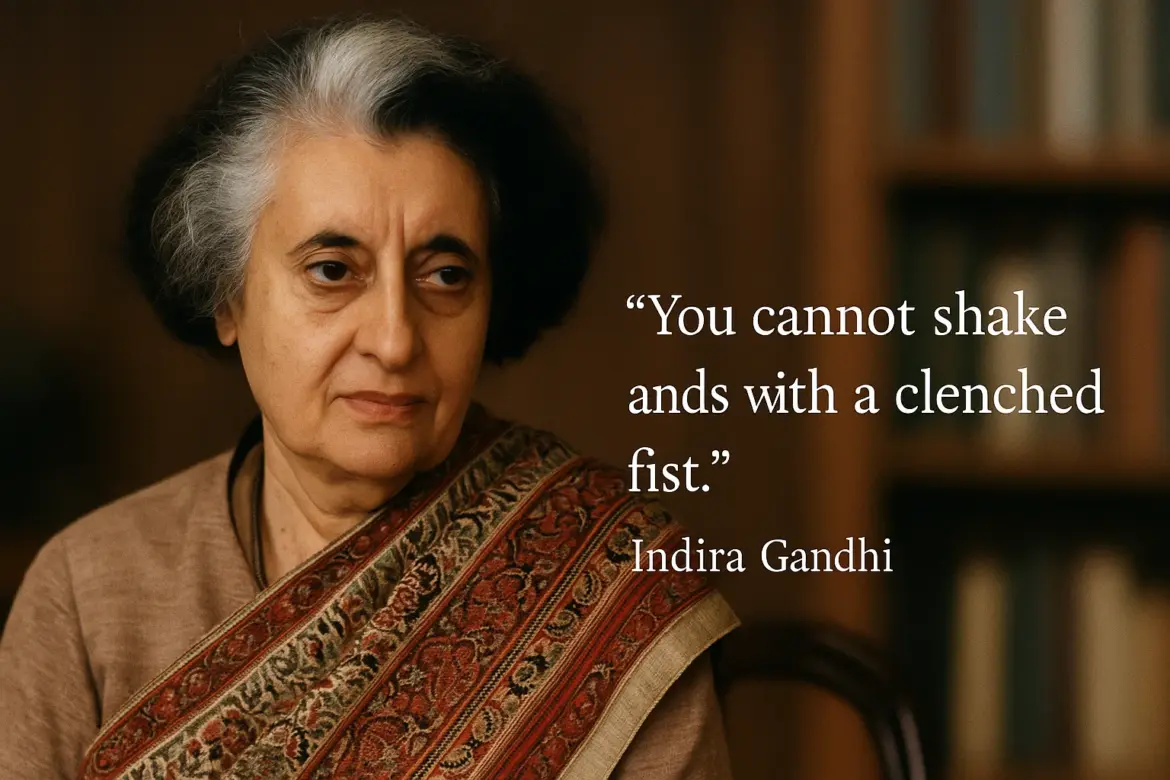Indira Priyadarshini Gandhi, born in 1917 in Allahabad, was the daughter of Jawaharlal Nehru, India’s first Prime Minister. Growing up in the midst of the freedom struggle, she was exposed to politics, leadership, and nationalism from a very young age. She studied at prestigious institutions in India and abroad, including Oxford University.
After Nehru’s death, and the brief tenure of Lal Bahadur Shastri, Indira Gandhi became Prime Minister of India in 1966, making her the first and only woman to hold the position in Indian history so far.
At first, many dismissed her as a “puppet” leader. But she soon proved herself to be strong-willed and independent. She took bold actions like the nationalization of banks, abolition of privy purses for former royals, and launching the Green Revolution, which made India self-sufficient in food production.
Her finest hour came during the 1971 Indo-Pak war, when she led India to victory and supported the creation of Bangladesh. This earned her international acclaim and solidified her status as a global leader.
However, her tenure was not without controversy. In 1975, facing allegations of electoral misconduct, she declared a state of Emergency—suspending civil liberties, arresting opposition leaders, and censoring the press. This 21-month period remains one of the most debated parts of Indian democracy.
Despite the backlash, she returned to power in 1980 with a massive majority. But in 1984, she ordered Operation Blue Star, a military action to remove armed militants from the Golden Temple in Amritsar. This deeply hurt Sikh sentiments.
On October 31, 1984, she was assassinated by her own Sikh bodyguards in retaliation. Her death led to widespread riots and one of the darkest chapters in India’s history.
Legacy
Indira Gandhi is remembered as bold, decisive, and fearless. She broke gender barriers, strengthened India’s global position, and left behind a complex legacy of development, power, and controversy. She remains a symbol of female leadership in a male-dominated world and is still studied and debated by political thinkers worldwide.

